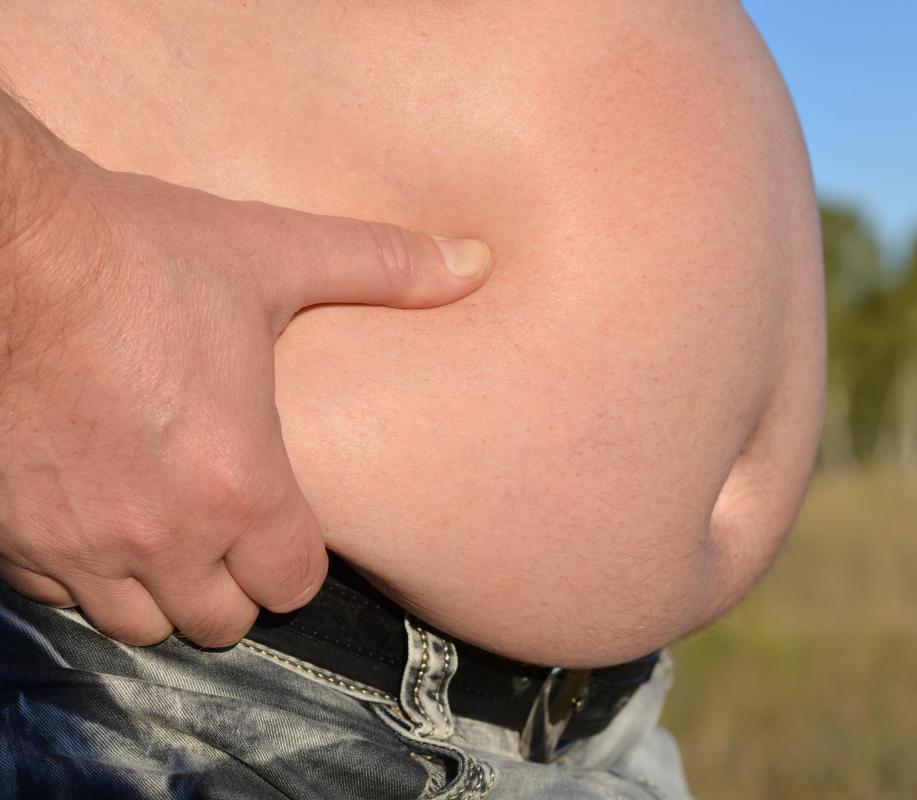At TheHealthBoard, we're committed to delivering accurate, trustworthy information. Our expert-authored content is rigorously fact-checked and sourced from credible authorities. Discover how we uphold the highest standards in providing you with reliable knowledge.
What is Skin Plaque?
A skin plaque is a type of skin lesion which is characterized by being raised from the skin, and broader than it is tall. Skin plaques are associated with a number of disease processes which can involve the skin and other areas of the body as well. They are typically first seen by a primary care provider or dermatologist who can conduct some tests to learn more about what is causing the plaques so that approaches to treatment can be discussed.
Because they are raised, skin plaques can be felt during an examination. The area may feel rough and bumpy or smooth, depending on the underlying process. Often, the plaque is white or red, and may be scabbed or crusted. Sometimes a skin plaque is flaky, with pieces of dry skin creating a rough texture and appearance. The plaque can also usually be identified visually, thanks to the contrasting color and raised nature of the lesion.

Psoriasis is a condition commonly associated with plaques, but they can be caused by a wide variety of other disease processes. Sometimes plaque formation is part of a congenital condition, while in other cases, it is a symptom of a new infection. It can also be a sign of skin irritation; exposure to too much sun, harsh chemicals, or allergens can cause a skin plaque to develop.

The location of a skin plaque can sometimes provide clues into why it formed. If someone has plaques on the lower arms, for example, it may suggest that the plaques are the result of allergen exposure, while plaques on the torso may indicate an underlying disease process, since the torso is usually protected from environmental allergens. Other information which can be useful includes the color of the plaque, the size, whether or not multiple plaques are present, and how quickly the plaques formed.

Treatment for skin plaques varies. Finding the underlying cause is important. While addressing the cause, soothing skin creams may be applied if a skin plaque is itchy or rough. These can include moisturizers to lubricate dry skin. If the plaque is associated with a congenital issue, there may be treatments such as soaks in soothing materials, light therapy, and so forth which could be used to soothe plaques and reduce the frequency of their formation. If skin plaques are caused by an emerging medical issue, addressing the cause may resolve the plaques and make the patient comfortable again.
AS FEATURED ON:
AS FEATURED ON:


















Discussion Comments
I have read that water therapy has become popular for treating skin plaque as it shows great results after only a few tries. Basically this entails adding natural bath sea alts to your water and soaking in it.
You can have these therapeutic treatments done at a spa or holistic center, and often at health clinics just about anywhere.
Many dermatologists have been suggesting that these sea salt baths be use for patients with things like psoriasis and eczema because it is believed to deep clean pores and provide relief for the skin.
Has anyone had any personal experience using water therapy to treat his or her skin plaque?
I would be curious to know how long it took you to see results and if it stayed better, or required continuing treatment.
If you have skin plaque and the doctors think it may be psoriasis be aware that there is no actual cure for this condition, only treatments that can lesson it to the point where it is not as uncomfortable and visible.
There are some natural treatments available that have been recommended by suffers and that won't hurt you to try them. The first is Dead Sea salts. Using Dead Sea salts as an exfoliating scrub may help you shed some of the build up of plaque.
Changes in diet have also been shown to help with psoriasis, though it is more up to individual experimentation to see which ones adversely impact you.
As someone who has suffered from skin plaques my whole life I can tell you that these are one of the most annoying skin disorders out there. Mine became extremely raised up, at times as much as a quarter of an inch. It was really shocking to look at and I was extremely self conscious about it.
I went to a number of dermatologists who prescribed me a whole medicine bag filled with different ointments, none of which worked at all. I was finally able to find a doctor who suggested that my condition may be an allergic reaction. I am now working with an allergist to get to the heart of the problem. It hasn't gone away completely, but it is slowly starting to get better. With any luck, I will get over this horrible condition.
I had what I think was a skin plaque one. It was a thin raised line, maybe 3 inches long, that ran along my left forearm. It kind of looked like a cat scratch but it was never red. The color was basically white, it blended into my natural skin color easily.
In general it was not a nuisance. It was not extremely visible. If I rubbed or itched it a lot it would begin to feel itchier itself, but this was a pretty minor annoyance. I never really even thought about getting it treated and then one day it seemed to be gone. No ointments or soaps or washes or anything, just gone.
Post your comments